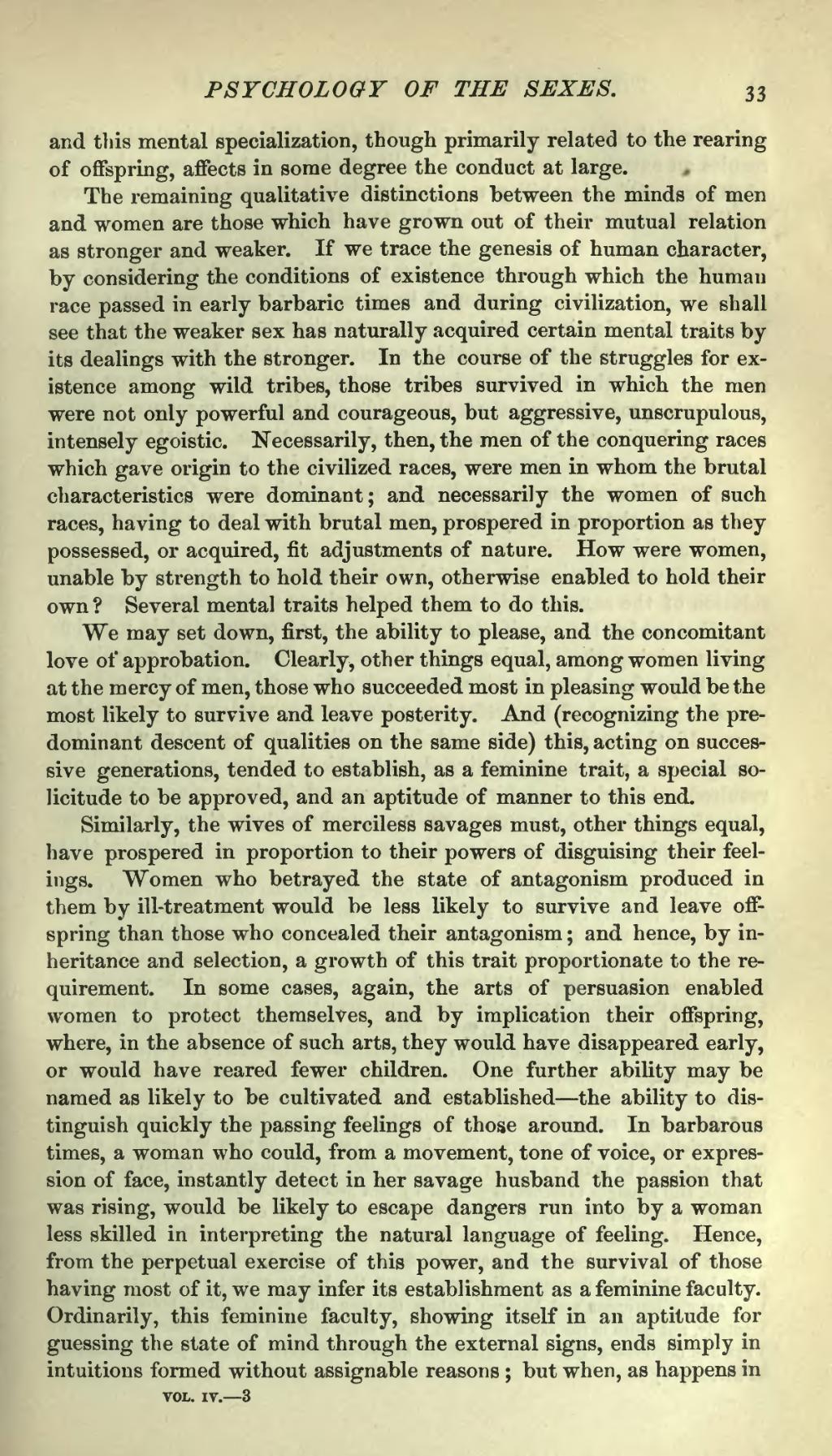and this mental specialization, though primarily related to the rearing of offspring, affects in some degree the conduct at large.
The remaining qualitative distinctions between the minds of men and women are those which have grown out of their mutual relation as stronger and weaker. If we trace the genesis of human character, by considering the conditions of existence through which the human race passed in early barbaric times and during civilization, we shall see that the weaker sex has naturally acquired certain mental traits by its dealings with the stronger. In the course of the struggles for existence among wild tribes, those tribes survived in which the men were not only powerful and courageous, but aggressive, unscrupulous, intensely egoistic. Necessarily, then, the men of the conquering races which gave origin to the civilized races, were men in whom the brutal characteristics were dominant; and necessarily the women of such races, having to deal with brutal men, prospered in proportion as they possessed, or acquired, fit adjustments of nature. How were women, unable by strength to hold their own, otherwise enabled to hold their own? Several mental traits helped them to do this.
We may set down, first, the ability to please, and the concomitant love of approbation. Clearly, other things equal, among women living at the mercy of men, those who succeeded most in pleasing would be the most likely to survive and leave posterity. And (recognizing the predominant descent of qualities on the same side) this, acting on successive generations, tended to establish, as a feminine trait, a special solicitude to be approved, and an aptitude of manner to this end.
Similarly, the wives of merciless savages must, other things equal, have prospered in proportion to their powers of disguising their feelings. Women who betrayed the state of antagonism produced in them by ill-treatment would be less likely to survive and leave offspring than those who concealed their antagonism; and hence, by inheritance and selection, a growth of this trait proportionate to the requirement. In some cases, again, the arts of persuasion enabled women to protect themselves, and by implication their offspring, where, in the absence of such arts, they would have disappeared early, or would have reared fewer children. One further ability may be named as likely to be cultivated and established—the ability to distinguish quickly the passing feelings of those around. In barbarous times, a woman who could, from a movement, tone of voice, or expression of face, instantly detect in her savage husband the passion that was rising, would be likely to escape dangers run into by a woman less skilled in interpreting the natural language of feeling. Hence, from the perpetual exercise of this power, and the survival of those having most of it, we may infer its establishment as a feminine faculty. Ordinarily, this feminine faculty, showing itself in an aptitude for guessing the state of mind through the external signs, ends simply in intuitions formed without assignable reasons; but when, as happens in
